

Blogs
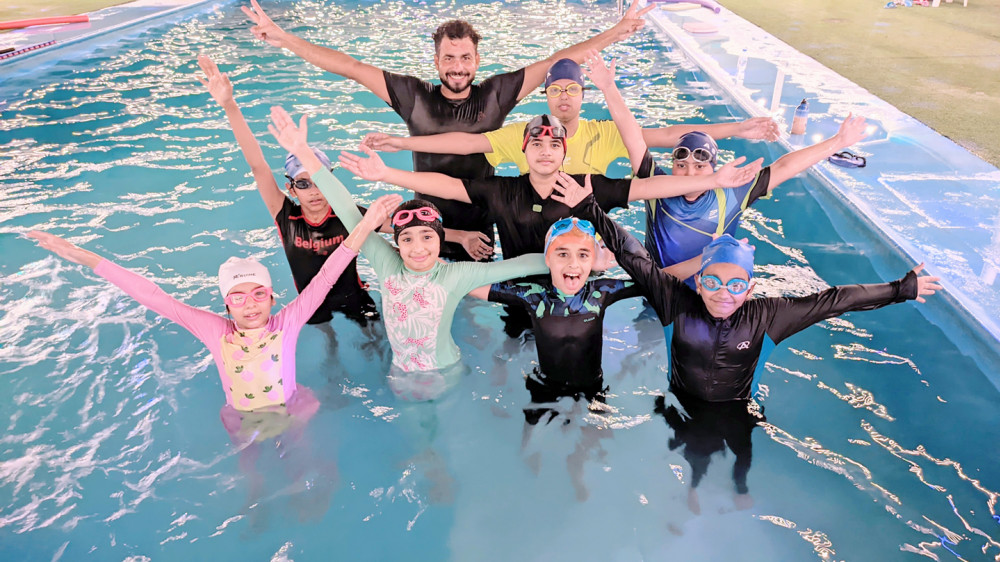
Kids happy mood after swimming
2023-08-23 - SwimmingAfter a fun-filled swimming session, kids often experience a happy and positive mood. There are several reasons for this:
Physical Activity: Swimming involves physical movement and exercise, which can lead to the release of endorphins, the "feel-good" hormones. This physical activity can contribute to a sense of happiness and contentment.
Sensory Stimulation: Water play provides sensory stimulation through the feeling of water on the skin, the sound of splashing, and the sensation of buoyancy. These sensory experiences can be quite enjoyable for children.
Social Interaction: Swimming is often a social activity, whether kids are swimming with friends, family members, or participating in group swim lessons. Social interaction and bonding contribute to positive emotions.
Playfulness: Water play inherently brings out a sense of playfulness. Jumping, splashing, and floating in the water can evoke feelings of joy and excitement in children.
Variety and Novelty: Swimming offers a change of environment from the usual daily routine. The novelty of being in a pool or a different water body can create a sense of adventure and enthusiasm.
Relaxation: Water is known for its calming and relaxing effects. The act of swimming and being surrounded by water can help reduce stress and promote a sense of relaxation.
Sense of Achievement: Learning new swimming skills or achieving a certain distance can boost a child's confidence and self-esteem, leading to a positive mood.
Connection with Nature: Being in the water connects children with nature and the outdoors, which can evoke positive feelings and a sense of wonder.
Energy Expenditure: Swimming requires a significant amount of energy, which can lead to a feeling of tiredness and satisfaction afterward. This physical exhaustion can contribute to a sense of happiness.
Sunlight Exposure: If swimming outdoors, exposure to natural sunlight can also play a role in boosting mood by increasing the production of serotonin, a neurotransmitter associated with feelings of well-being.
It's important to note that each child's experience can vary based on their personality, comfort level in the water, and individual preferences. Some children might feel more joyful and energized after swimming, while others might feel relaxed and content. Overall, swimming tends to have a positive impact on children's moods due to the combination of physical activity, sensory experiences, social interaction, and the sense of adventure it provides..
Other Blogs

Mind – Nurture It for Reflecting the Healthier Version of You
2022-12-20 - Mental Health
Water - The Divine Portion that Maintain Life
2022-12-19 - Water
Its time to Wake Up!
2022-12-19 - Lifestyle
Significance of Leisure Activity
2022-12-21 - Mental Health
Beginner Tips for Mastering the Art of Swimming
2022-12-21 - Swimming.jpg)
Significance of Safety Measures for Enjoyable Swimming Lessons
2022-12-24 - Swimming
Proper Nutrition for Active Swimmers
2022-12-24 - Food Habits
Swimming has a Long History Dating Back to Ancient Civilizations
2022-12-26 - Swimming
Best Beach Activities to try out
2022-12-26 - Beach
Swimming – An All-Inclusive Fun Package for Children Promoting their Physical, Mental, and Social Development
2022-12-27 - Swimming
Swimming Gears – Equip and Train Yourself to Swim Confidently
2022-12-27 - Swimming
Be a Karateka; Teach Yourself the Superior Skills of Discipline, Self-Control, and Respect
2022-12-29 - Martial Arts, Karate
Famous Swimmers and Their Inspirational Stories
2022-12-29 - Martial Arts, Karate
Swimming Events and Competitions Offers Swimmers with a Rewarding and Enriching Experience
2023-01-02 - Martial Arts, Karate
Believe It or Not, They are Too Good in Martial Arts
2023-01-04 - Martial Arts, Karate
Mental Skills Developed through Karate Training
2023-01-05 - Martial Arts, Karate
Karate In Its Various Forms
2023-01-07 - Martial Arts, Karate
Get To Know the Karate Terms – Part 1
2023-01-07 - Martial Arts, Karate
Get To Know the Karate Terms – Part 2
2023-01-09 - Martial Arts, Karate
Swimming Empowers Students with Skills to Attain Higher Levels in Academics
2023-01-10 - Swimming
Water Based Exercise Can Be a Fun and Stimulating Experience for Stroke Patients
2023-01-12 - Swimming
Swim Workouts for Having a Lean, Muscular “Swimmer’s Body”
2023-01-14 - Swimming
Adopt the FITT PRINCIPLE for an enjoyable and successful swimming experience
2023-01-16 - Swimming
Dance In Water Like Beautiful Mermaids Performing Water Ballets
2023-01-18 - Swimming
Swimming kids and teacher with friendly environment
2023-08-13 - Swimming
Kids Motivation together its produce encouragement and confidence
2023-08-14 - Swimming
Achievement certificate of swimming level-2 Congratulation
2023-08-15 - Swimming
Producing confidence to new coming kids for swimming
2023-08-16 - Swimming
Expert Instructor makes swimming easy for kids
2023-08-17 - Swimming
Talent of kids after swimming with happness
2023-08-19 - Swimming
Why gymnastic steps is more easy for kids
2023-08-20 - Swimming
Kick-Boxing workout for kids
2023-08-21 - Swimming
Kids will develop strength, flexibility, coordination, and cardiovascular with karate
2023-08-22 - Swimming
Kids happy mood after swimming
2023-08-23 - Swimming
Gymnastics is a passion for you and your kids!
2023-08-24 - Swimming
Emphasize the importance of teamwork for football
2023-08-26 - foôtball
Swimming different techniques for kids
2023-08-27 - swimming
All necessary facilitates available for swimmer
2023-08-28 - swimming
Swimming offers a wide range of benefits for women, both physical and mental
2023-08-29 - swimming
Private swimming for a family can be a wonderful idea for recreation, exercise, and relaxation
2023-08-30 - swimming
Introducing a 2-year-old baby to swimming can be a rewarding and fun experience
2023-08-31 - swimming
Small Kids Swimming with Confidence a Guide for Parents
2023-09-02 - swimming
Swimming center views for kids and parents
2023-09-03 - swimming
Different Activities for Kids
2023-09-04 - swimming
Creating an Inclusive Swimming Experience for kids
2023-09-05 - swimming
Different swimming actions techniques, benefits, and tips
2023-09-06 - swimming
Swimming for Kids in a Friendly Environment
2023-09-07 - swimming
Transportation for Kids picks and drop facilities
2023-09-09 - swimming
Healthy Foods for Swimming Kids, Fueling Their Success in the Pool
2023-09-09 - swimming
Football Coaching Classes for Kids
2023-09-09 - foôtball
Swimming can be a fun and enjoyable activity, especially for children
2023-09-18 - swimming
Special Offer for Swimming with Low Price
2023-09-12 - swimming
Swimming Baby with Parents to Create Confidence
2023-09-13 - swimming
Swimming Jumping Skills for Kids with Full Confidence
2023-09-14 - swimming
Swimming is wonderful gaming for kids and provide health
2023-09-16 - swimming
A scene where kids are having fun with boat before swimming
2023-09-17 - swimming
The Joy of Swimming: Creating Wonderful Moments for Kids
2023-09-19 - swimming
Swimming Level 1 Starfish Certificate Achievement: Dive into Success
2023-09-20 - swimming
Swimming Level 2 Swordfish Certificate Achievements
2023-09-21 - swimming
Ladies Swimming Skills: Expert Instruction for a Splashing Good Time
2023-09-23 - swimming
Adults can benefit greatly from taking the plunge into the refreshing waters of a pool
2023-09-24 - swimming
Achieve Your Swimming Goals with the Level 3 Manta Ray Certificate
2023-09-25 - swimming
Achieving the Swimming Level 4 Crocodile Certificate: A Proud Accomplishment
2023-09-26 - swimming
The Kids Swimming Level 5 certificate is recognition of a child's advanced swimming abilities
2023-09-27 - swimming
Children will have different levels of swimming abilities
2023-09-28 - swimming
Now let's start Karate Kicks: Nice Steps for Learning
2023-09-30 - karate
Swimming is not only a valuable life skill but also an enjoyable and healthy activity for children
2023-10-01 - swimming
Kids Swimming Warnings and Auctions
2023-10-02 - swimming
Swimming is good for heart: A healthy heart is essential for a long and fulfilling life
2023-10-04 - swimming
Exploring the World of School Activities for Kids
2023-10-07 - activites
Karate, the ancient martial art, provides the perfect avenue for beginners to dive into a world of personal growth and self-defense
2023-10-05 - karate
Few activities can match the holistic benefits of swimming
2023-10-06 - karate
Kids Swimming with a Friendly Environment and Enjoying
2023-10-08 - swimming
Infant Swimming: Follow Up with Happy Movement
2023-10-09 - swimming
Swimming can be an excellent hobby and workout for people of all ages and fitness levels
2023-10-11 - swimming
Swimming Tips: How to Relax in Backstroke
2023-10-11 - swimming
Needs Tips for Kids Karate
2023-10-13 - karate
Swimming: Supporting Material for Kids
2023-10-14 - swimming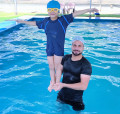
Swimming is an excellent full-body workout
2023-10-15 - swimming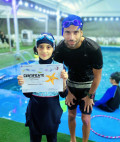
A fantastic way for kids to build their confidence
2023-10-16 - swimming
Gymnastics is a fantastic way to keep kids active and healthy
2023-10-18 - gymnastic
Great Start How Swimming Motivates Kids to Build Confidence
2023-10-19 - swimming
Infant Swimming: A Joyous Experience for Parents and Babies
2023-10-20 - swimming
Looking for Karate Parents: How to Become Active in Your Child's Journey
2023-10-21 - karate
Swimming inside the Water: Enhancing Your Breathing Technique
2023-10-22 - swimming
Karate for Kids Can Be a Source of Joy for Parents
2023-10-23 - karate
Looking for Swimming Classes in Sharjah and Ajman
2023-10-26 - swimming
Learning the art of kickboxing can provide children with numerous benefits
2023-10-27 - kick-boxing
Swimming for Kids: A Fun and Beneficial Activity
2023-10-29 - swimming
Swimming Kids: Building Confidence like No Other Activity
2023-10-30 - swimming
Kids Different Types of Drawing Activities
2023-11-01 - drawing
Kids Learning Quran Kareem and Prayer
2023-11-03 - Islamic Education
All Activities Explained: Swimming, Karate, Gymnastics, and Kickboxing
2023-11-04 - All activities
Swimming Instructor Tips for Teaching Kids: Making Learning Fun and Safe
2023-11-05 - swimming
Swimming Inside the Water with Long Dive
2023-11-06 - swimming
Lady Swimming Instructor for Kids with More Experience
2023-11-08 - swimming
Karate is important for kids: How to Start
2023-11-10 - karate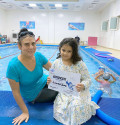
Swimming Achievement for Kids: What It Means and How They Can Succeed
2023-11-11 - swimming
Benefits of Swimming for Kids and Babies
2023-11-12 - swimming
Winter Camp for Kids: A Fun and Educational Escape
2023-11-13 - winter camp
Kickboxing for Small Kids boosting Confidence One Punch at a Time
2023-11-15 - kick-boxing
Kids Feel Gymnastics as Fun and Get More Interested
2023-11-16 - gymnastic
Swimming Lesson for Kids: A Dive into Confidence and Skill Mastery
2023-11-17 - swimming
Karate for Kids: Unleashing Potential in a New Branch
2023-11-18 - karate
Swimming, karate, gymnastics, kickboxing, and kids' activities
2023-11-19 - kids activites
Swimming is Become the Passion of Kids if They Have Confidence
2023-11-20 - swimming
Swim Like a Fish: How to Learn Kids
2023-11-22 - swimming
Swimming in the Winter Season in Ajman and Sharjah
2023-11-23 - swimming
Kids Mostly Interested in Martial Arts Karate
2023-11-24 - karate
Physically Fit Girls in Kickboxing Breaking Barriers and Building Strength
2023-11-25 - kick-boxing
Gymnastic Steps “ Pike” for Kids
2023-11-26 - gymnastic
Private Swimming for Kids Unlocking the Joy of Learning to Swim
2023-11-27 - swimming
Karate for kids learn the front kick
2023-11-29 - karate
Kickboxing for Kids Learn Hook Moves, How to Learn
2023-12-01 - kick-boxing
Kids Talented Swimming Skills Looking Healthy and Smart
2023-12-06 - swimming
Gymnastics for Kids Let's Learn Handstand method
2023-12-07 - gymnastic
Popular Swimming Pool in Sharjah
2023-12-08 - swimming
Karate for kids lets learn roundhouse kick
2023-12-09 - karate
Kickboxing for girls to make healthier: A Fun Path to Fitness
2023-12-10 - kick-boxing
Kids Winter Camp Activities in Sharjah
2023-12-11 - winter camp
How To Encourage Your Child While They Learn To Swim
2023-12-13 - swimming
Gymnastic for kids lets learn pike step today
2023-12-14 - gymnastic
Babies Swimming in Sharjah with Professional Instructor
2023-12-15 - swimming
Let's Learn Side Kick in Karate
2023-12-16 - karate
Students Can Enroll in Classes for Rhythmic Gymnastics
2023-12-17 - gymnastic
Kids Swimming Inside Water Putting Glasses to Their Eyes
2023-12-18 - swimming
Kids Activities Exploring the World of Karate, Swimming, Gymnastics, and Kickboxing
2023-12-20 - kids activites
Gymnastics for Kids Let's Learn the Split Step
2023-12-21 - gymnastic
Kickboxing for Kids: Let's Learn the Straight Kick
2023-12-22 - gymnastic
Karate for Let's Learn Smell My Fanny
2023-12-23 - karate
Kickboxing for Kids Learning Defense Steps
2023-12-25 - kick-boxing
Kids Swimming Learn the Butterfly Stroke with Joy
2023-12-27 - swimming
Winter swimming offers more than just a refreshing dip
2023-12-28 - swimming
Gymnastic Drills for Beginners Foundations of Athletic Excellence
2023-12-30 - gymnastic
Kids Karate Learn Straight Kick Mastering the Basics
2024-01-03 - karate
Swimming for Kids Together with Enjoying
2024-01-04 - swimming
The Essence of Kids Karate Kokato Geri Learn
2024-01-06 - karate
Swimming with Lady Trainer Kids Learning Quickly
2024-01-08 - swimming
Kickboxing of Boys and Girls Kids
2024-01-10 - kick-boxing
Gymnastics program designed to strengthen kids' muscle control, flexibility, and balance
2024-01-11 - gymnastic
Swimming Skills for Kids like a Fish a Comprehensive Guide
2024-01-12 - swimming
Swimming for Small Kids Creating a Safe and Friendly Learning Environment
2024-01-15 - swimming
The Front Kick Mae Geri for Kids
2024-01-17 - karate
Swimming for Small Kids to Get More Confidence
2024-01-18 - swimming
Karate involves dynamic movements, enhancing a child's physical fitness and coordination
2024-01-19 - karate
Gymnastics for Kids Unlocking the Potential of Playful Exercise
2024-01-20 - gymnastic
Kids Swimming in a Friendly Environment Dive into a Joyful Learning Experience
2024-01-21 - swimming
Kickstarting Confidence Kickboxing for Kids Learning Skills
2024-01-22 - kick-boxing
Baby Swimming Skills with Professional Trainer
2024-01-24 - swimming
Karate for Kids Mastering Ushiro Tobi Geri
2024-01-25 - karate
Swimming Skills with Different Techniques
2024-01-26 - swimming
Gymnastics for Kids in Health Fitness Center
2024-01-27 - gymnastic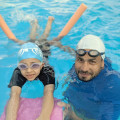
A qualified instructor has the knowledge and skills to teach proper swimming techniques
2024-01-28 - swimming
Kickboxing for Kids An Exciting Journey Filled with Valuable Life Lessons
2024-01-29 - kick-boxing
Small Kids Easily Do Karate Steps
2024-01-31 - karate
Swimming Backstroke and Sidestroke for Adults
2024-02-01 - swimming
Small Kids Swimming Skills Initiating Their Aquatic Journey
2024-02-03 - swimming
How to do a Bridge While Lying on Their Back in Gymnastics
2024-02-04 - gymnastic
Swimming for Kids as Exercise
2024-02-05 - swimming
Looking Smart Kids Playing Martial Karate
2024-02-07 - karate
Infant Swimming Encouraging Your Baby's Water Adventures
2024-02-07 - swimming
Adult Swimming Dive into a Healthy Lifestyle
2024-02-09 - swimming
Gymnastics for Small Kids to Motivate and Encourage
2024-02-10 - gymnastic
Let's Learn Butterfly Skills in Swimming
2024-02-11 - swimming
Kickboxing Let's Learn Hook for kids
2024-02-12 - kick-boxing
Swimming for Kids Enjoyable Movements
2024-02-14 - swimming
Karate teaches valuable life lessons beyond self-defense
2024-02-15 - karate
Swimming Success Great Steps for Kids to learn Swimming Skills
2024-02-16 - swimming
Effective Tips for Kids Karate Mastering Leg Movements
2024-02-17 - karate
Gymnastics for Kids How to Learn Splits
2024-02-18 - swimming
Female Private Swimming with Ladies Instructor
2024-02-19 - swimming
Improve Your Kids’ Physical Strength and Boost Their Self-Confidence in This Kickboxing Class!
2024-02-21 - kick-boxing
Swimming for Beginners Easy Steps to Dive Into the Pool
2024-02-22 - swimming
Introduction to Silhouette Karate Front Kick
2024-02-23 - karate
Gymnastics Performance Provides a Strategic Advantage
2024-02-24 - gymnastic
Swimming Strokes Choosing the Right Technique for You
2024-02-25 - swimming
Punching Bag for Kids and Adults in Kickboxing
2024-02-26 - kick-boxing
Regular swimming sessions contribute to overall physical fitness
2024-02-28 - swimming
Karate and other martial arts are often used in an overall program to help children
2024-02-29 - karate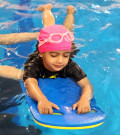
Swimming helps in developing strength, coordination, and muscle tone in children's
2024-03-01 - swimming
Progressive Gymnastics Program for Under 6’s: A Holistic Approach for Boys and Girls in gymnastic
2024-03-02 - gymnastic
Swimming offers a full-body workout, engaging various muscle groups
2024-03-03 - swimming
Kickboxing classes provide an opportunity for children to engage in regular exercise
2024-03-04 - kick-boxing
Teaching Swimming to Small Kids A Comprehensive Guide
2024-03-06 - swimming
Children Martial Arts Starting Jumping
2024-03-07 - karate
Swimming Steps for Beginners and Small Kids
2024-03-08 - swimming
Butterfly Stroke for Kid in swimming
2024-03-09 - swimming
Stretching’s learning in Gymnastics for Kids
2024-03-10 - gymnastic
Beyond the physical aspect, swimming also has numerous psychological benefits for kids
2024-03-11 - swimming
Kickboxing for All Ages a Comprehensive Guide
2024-03-13 - kick-boxing
Learning Backflip for Kids in Gymnastics
2024-03-14 - gymnastic
When you take a plunge into the pool, your heart rate increases, giving your cardiovascular system an excellent workout
2024-03-15 - swimming
Karate equips children with essential self-defense techniques
2024-03-16 - karate
Swimming Level Six Octopus Certificate Mastering Aquatic Proficiency
2024-03-17 - swimming
Swimming Achievement Level Seven Certificate A Mark of Excellence
2024-03-18 - swimming
Mastering the cross stroke requires precise coordination between the upper and lower body
2024-03-20 - kick-boxing
Flexibility is the cornerstone of gymnastics
2024-03-21 - gymnastic
Article on How to Swimming Kids Back Stroke Free Style
2024-03-22 - swimming
To execute the punch front effectively, it is crucial to focus on proper technique
2024-03-22 - karate
Swimming promotes strength, endurance, and flexibility in children
2024-03-24 - swimming
Starfish provides beginners with the essential skills and confidence needed to enjoy the water safely
2024-03-29 - swimming
Physical activity like gymnastic is crucial for children's overall health and well-being
2024-03-30 - gymnastic
Karate, which translates to empty hand is a Japanese martial art
2024-03-31 - karate
Begin by teaching children the basic arm movements and breathing techniques on water surface
2024-04-01 - swimming
Basic Cross Punching in Kickboxing Learning the Fundamentals
2024-04-03 - kick-boxing
Small Kids Swimming Fun Activities inside the Pool
2024-04-04 - swimming
Gymnastics for Kids Learn One Side Split Step
2024-04-05 - gymnastic
Drawing Activities for Kids to Learn Something new
2024-04-06 - drawing
Swimming is a life-saving skill, and starting early can significantly reduce the risk
2024-04-14 - swimming
The Skills of a Karate Instructor Comprehensive Guide
2024-04-15 - karate